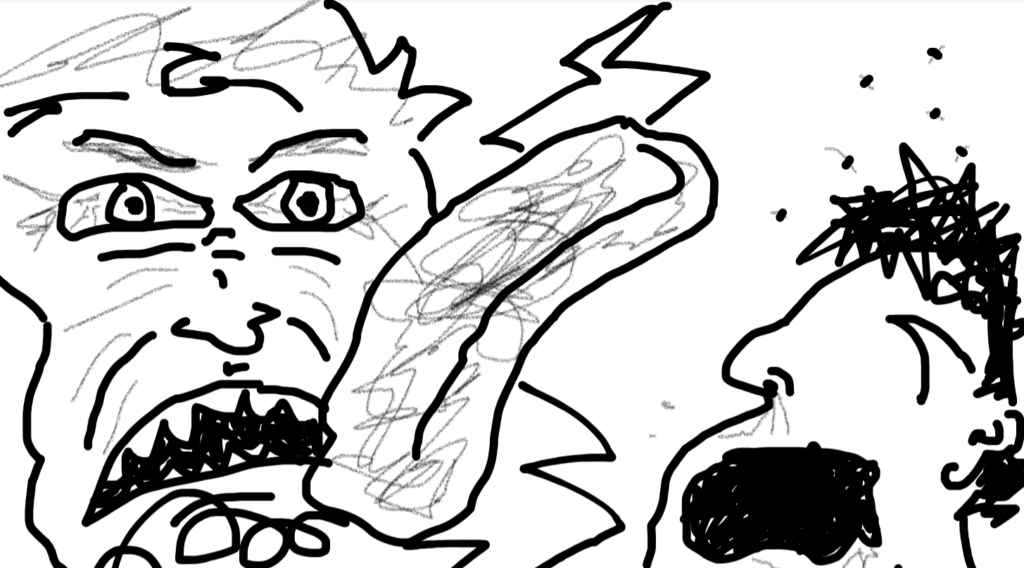
Cohortage

Cohortage
I’d heard the rumor about the woman who cussed you out if you called her. A kid who was in the know scrawled the number down for me on a torn thumb of paper, and I took it to my friend’s house after school. We were a cohort.
The telephone in his bedroom was clear plastic so you could see all the wiry guts and mechanisms inside. He dialed the number with his Dorito-dusted fingers, smearing orange paste on each button. Our heads flanked the handset. Our ears touched. My friend’s head was like a crescent moon. His face creased at the nose and upper lip. I thought lice would jump from his head to mine, but I stayed close anyway because the phone was ringing. The thrill of it was a salacious, squirming thing inside our guts.
The woman answered and spat obscenities I’d never heard since. I’ve promised not to repeat the exact things she said as penance for my involvement in this and for other things I’ve done, but I will say this: her core message was an invitation to eat certain, private parts of her, sometimes hemorrhaging, with sides of random pairings like peanut butter, a suitcase, sometimes parts of her fried and served up on a baking sheet. All this delivered in the style and flourish of a sweaty TV preacher. Her inverted gospel galloped on in a breathless litany until the final syllables jumped and then dipped. She socked on a grunt and whoop at the end, sucked air, and started again.
She did this each time we called. Several times a day over several days. Other cohorts called her from their own houses. Presumably. Her line was busy. Often. Sometimes we stopped and did other things because we bored easily. When we got bored of the other things, we called again.
We squealed and screamed back slopped-together combos of hard cusses, imagery of putrid, secreting medical conditions, scatological things, under-rock scatterings. We tried to match her spit for spit but could not, of course. Our own laughs interrupted us, or else we ran out of ways to curse her. The real reason: our judgments upon her came from mere mischief. Her judgments, precise and bizarre, came from some place we had not known, and never could. Empathy was never part of the game until the final call when my friend took a different approach.
He offered apologies and I joined in, moved by his turning toward grace. We asked for forgiveness, promised we’d never call again, and that we’d tell our friends to stop too.
She told us stories for minutes and minutes. How she’d helped the neighborhood children with their homework. I used to be a teacher. We asked her real name. Some people call me Crazy Bertha. Some call me Bloody Mary. Why didn’t she change her number? It doesn’t bother me. They don’t bother me.
Light fell upon our faces. My friend’s crumpled head softened. We listened to her and exchanged mature, thoughtful expressions. This went on until my friend threw off the light and howled from his empty gut one final condemnation upon her. He dropped the handset and stuffed his mouth with a dishwatered lump of laundry.
He didn’t know her or me or anyone else. He’d never known how to know anyone at all. I don’t remember her response. Instead, I remember the mothball and cat litter smell that hung in that room and always would.
I’ve spent the rest of my life gathering sorrows as these like rocks and praying for their redemption. About my friend: I’ve never hoped for redemption for someone else so badly.